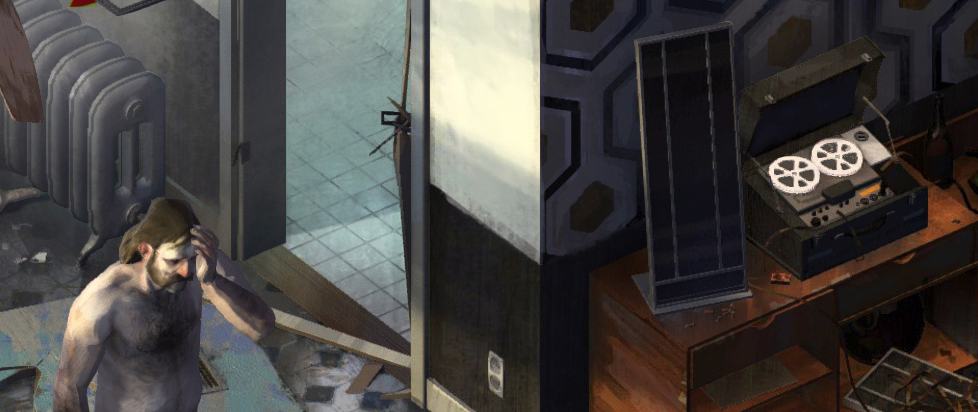
How Disco Elysium’s Centrist Path Observes the Player
Trigger warnings: This piece discusses suicidal ideation, as well as late-game spoilers and content specific to Disco Elysium: The Final Cut.
By design, role playing games encourage centrism – at least for a first run, which is often the only run for many players. Pushing any moral side too hard (and branching content is often assigned across moral alignments) can prune content, as potential allies die or factions side against you. There is a convention that, if you want to play the game ‘correctly’ – to get a good or ‘true’ ending, or see the canon story in your first playthrough – you need to keep everyone happy. Compromise, and don’t rock the boat.
Disco Elysium’s design pushes back on these conventions from the beginning. Between loading screen tips that encourage you to get ‘wacky’, and uncomfortable, aggressive NPC encounters it wants to push you to the extremes of Harry’s behaviour. After all, do you want to be moderate to a Racist Lorry Driver? To then intentionally choose a middle path is something the game observes and comments on, ending up in conversation with the player.
The world of Disco Elysium is intensely political, and to choose not to take a side or have an opinion is markedly non-neutral. Disco Elysium’s “moralism” represents an authoritarian centrism that cannot allow anything but the status quo to hold power. It isn’t about diplomacy, or pacifying all sides, but about absolute control.
For Harry DuBois, on the other hand, political choices are emotional ones, and this is what Disco Elysium has in lieu of a moral alignment compass. This isn’t to say Disco Elysium isn’t politically authentic – the city of Revachol is drowning in its history, and the conflict at the story’s heart is unavoidably political, as is the way Harry interacts with it. But he is a man who has tamped down his personal history, and his overt political expressions are attempts at emotional displacement. To blame his strife on foreigners and women, to hustle his way out of it, to dissemble it into class struggle. Or, in the case of moralism, to assert absolute control and suppress both internal and external conflict.
As a specific ‘route’, the moralist one lets slip that it’s a coping mechanism for Harry’s despair. While early parts of the game address Harry’s suicidal ideation explicitly, the political vision quest for the moralists only sees the same motivations quashed under euphemism. He doesn’t discuss suicide in the manic or aggressive terms as before, but instead considers acquiescing to being disappeared. Because he’s tired of it, and it’s all too much. No matter how much he tries to say the correct thing, refusing to engage with how extreme circumstances are doesn’t make them go away.
Being a moralist doesn’t make Harry feel any better, but he still clings to the idea of it presenting him as reformed. Towards the end of the game, Harry confronts a deific vision of his ex-partner in a dream. He lays his cards on the table, pleading with her to take him back, because he’s a moralist now. “I’m not a broken, insane man who can’t live without you,” he says. “I know I made mistakes. And I’ve taken *full responsibility* for all of them. So you can live with me again if you want to. I’m better now.”
This is where the moderate player’s and Harry’s motivations align, and Dora’s response addresses them both together. “It doesn’t sound like you’re better at all, Harry. It doesn’t even sound like you’re a moralist, it just sounds like you want to… *Win me back* or something.” The moderate player is trying to play ‘correctly’, but so was moralist Harry, and this is not a good ending, no matter how hard either of you have tried.
Ruth Cassidy is a writer and self-described velcro cyborg whose DMs are open for pictures of mountains & your cats. Direct them to twitter @velcrocyborg





